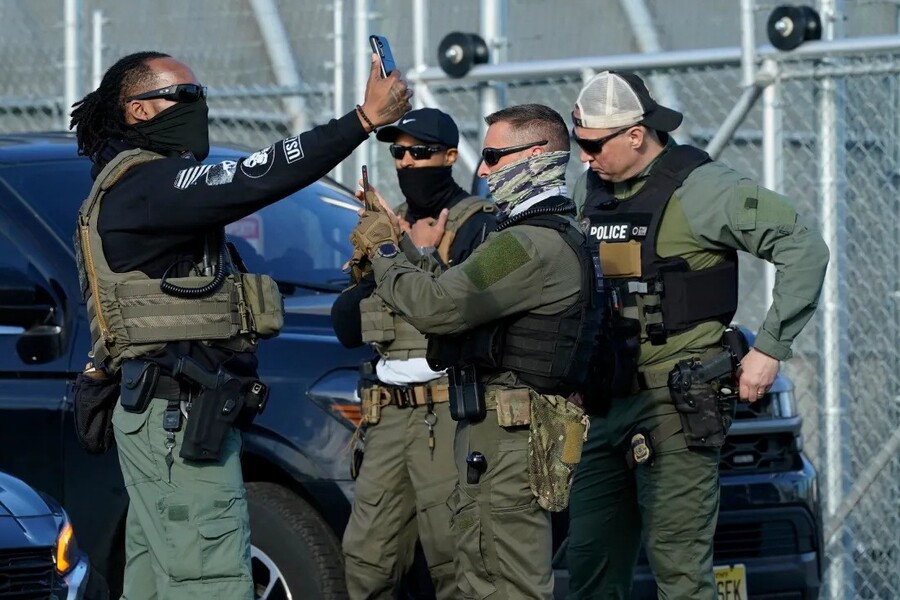Israeli spyware company Paragon, which brands itself as an “ethical” surveillance technology vendor, finds itself at the heart of a growing controversy over a dormant contract with U.S. Immigration and Customs Enforcement (ICE). As the Trump administration ramps up immigration enforcement, Paragon must soon decide whether providing its potent surveillance tools to ICE aligns with its stated ethical commitments or contradicts them entirely.
Background:
Paragon leapt into the public spotlight earlier this year after Italian authorities were found using its spyware to monitor journalists. In a rare move in the opaque spyware industry, Paragon cut off Italy as a client. It publicly acknowledged the breach of ethical use — the first known instance of a spyware vendor openly naming and severing ties with a customer due to misuse.
This assertive stance burnished the company’s reputation as a new kind of surveillance tech firm — one committed to human rights and selective in its clientele. Paragon has repeatedly emphasized that it only partners with “responsible” democracies, which it defines as the United States and its allies.
But a pending contract with ICE may test the limits of that policy.
The ICE Contract Dilemma:
In September 2024, Paragon signed a $2 million one-year contract with ICE’s Homeland Security Investigations (HSI) division, a deal that has not yet taken effect due to a stop-work order issued shortly after the agreement was finalized.
According to Department of Homeland Security sources, the pause was prompted by an internal review to determine whether the contract violates a 2021 Biden-era executive order. That order restricts federal agencies from using commercial spyware implicated in human rights abuses or the surveillance of U.S. citizens abroad.
So far, Paragon has not delivered any spyware tools to ICE. But the contract remains active — and could be greenlit at any time between now and its expiration on September 29, 2025.
If that happens, Paragon would face a critical decision: supply ICE with surveillance tools that could potentially be used in controversial immigration raids, or withdraw, as it did with Italy — this time with even more political and commercial weight on the line.
Political Context and Public Concerns:
Under the Trump administration, ICE’s operational scope has expanded significantly, backed by increased funding through the administration’s recently enacted “Big Beautiful Bill Act.” The law grants ICE greater latitude for detention and deportation actions, many of which rely on advanced digital surveillance.
ICE already utilizes an extensive data-sharing infrastructure provided by Palantir, another government tech contractor. The addition of spyware could dramatically escalate ICE’s surveillance capabilities — and the associated risks of civil liberties violations.
“Given this administration’s record of attacks on human rights and civil society organizations, we hope that Paragon would reconsider the agreement,” said Michael De Dora, U.S. advocacy manager at digital rights nonprofit Access Now. The organization has been outspoken in condemning spyware abuse and has called for tighter oversight of such technologies globally.
Paragon, however, has remained silent on the issue. Repeated inquiries by TechCrunch about the ICE contract’s future were met with no comment. The company would not disclose whether it plans to fulfill the deal if the review concludes in ICE’s favor.
The Trump White House also declined to offer clarity. Spokesperson Abigail Jackson referred questions to the Department of Homeland Security and would not comment on whether the current administration intends to uphold the Biden-era executive order on spyware.
Homeland Security and ICE have also remained tight-lipped, providing no updates on the contract’s review process.
The Ethical Spyware Paradox:
Paragon’s position as an “ethical” spyware provider is a self-imposed brand identity — and one that’s now under scrutiny. While its decisive action against Italy was unprecedented, the company’s choice to pursue a contract with ICE during a politically fraught period raises questions about how consistently it applies its ethical standards.
Industry watchers note that transparency among spyware companies remains rare. Most firms avoid disclosing clients altogether to preserve confidentiality and shield themselves from controversy. Paragon, by distinguishing itself as principled and selective, may have inadvertently invited more public accountability than its peers.
Now, the company is at a crossroads: honor a lucrative U.S. government contract with potential ethical risks, or walk away and reinforce its reputation for accountability.
Either way, the decision could set a new precedent — not just for Paragon, but for the future of ethical surveillance in a rapidly shifting geopolitical landscape.
What’s Next?
With less than three months left until the contract’s expiration, all eyes are on whether the U.S. government will approve the paused agreement. If it does, Paragon must choose between principle and profit.
Should it deliver spyware tools to ICE, the move would likely spark backlash from privacy advocates and civil rights organizations. If it refuses, the company could burn bridges with one of its key customers — the U.S. government.
In either scenario, the case could redefine what it means to be an “ethical” actor in the global spyware marketplace — and whether such a label can truly hold up under pressure.







